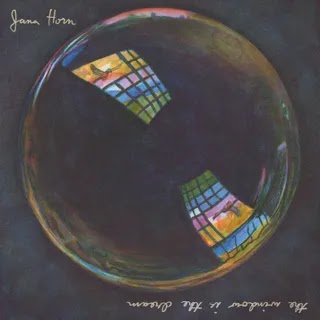Felix Walworth’s third album of skewed indie pop is solitary but inviting, setting songs about the pitfalls of intimacy against the most accessible sonics of their career.
The last time Felix Walworth released an album as Told Slant, they had company. Walworth was a founding member of the Epoch, an indie-pop musical collective that imploded toward the end of 2016; in the wake of that dissolution, Walworth made Point the Flashlight and Walk, the third Told Slant album, almost entirely alone. Compared to 2012’s Still Water and 2016’s Going By, which took inspiration from the screamed laments of early Modest Mouse, Point the Flashlight and Walk is brighter and more polished—a pop album, by Told Slant’s standards—but its themes are even heavier than usual. Its 12 songs are like a series of anecdotes, if not outright character studies, interrogating loneliness and unrequited emotions, offering a sense of communities lost and a person unsure how to define themselves again. The contrasting sound and subject matter make Point the Flashlight and Walk Told Slant’s most accessible record, but also their most intense.
Walworth is one of many queer people to find solace in Bruce Springsteen, and on Point the Flashlight and Walk, they took direct influence from 1982’s Nebraska, the rock icon’s most desolate and solitary album. The songs here are largely about characters who depend on and are devoted to each other, even if it means destruction for everyone involved. Many of the album’s themes are corollaries; the pointlessness of perfunctory relationships, the benefits of solitude, the dread of being stuck in that solitude. On “Flashlight On,” neither party can meet the others’ needs: “I would turn into you and you would turn into me/two empty things exchanging emptiness.” The narrator of “No Backpack” recognizes a similar destructive codependency, but opts to trudge on anyway: “I don’t want to run from you/When there’s no one you’re afraid to lose/You lose.” Walworth’s refrains often involve similar repetitions of terms, resembling intrusive thoughts more than conventional choruses.
In tweaking their own formula, Walworth also finds clever new tricks. “Moon and Sea” comes a little too close to early Death Cab for Cutie, but for a listener raised on that sort of bookish indie pop, the song’s uncanny familiarity dovetails neatly with its observations about refusing to leave the comforts of home. “From the Roofbeams” spins an elaborate aural metaphor based on phasing, a concept in audio engineering and music theory involving overlapping patterns that fall out of sync with each other. “Talking out of phase with you,” Walworth sings, followed by an incantation of “I can” that falls out of phase with itself, eventually becoming “Can I,” then “Can I stop loving you?”
That sense of playfulness—albeit in the service of serious topics—is new for Told Slant, and a part of the reason why Point the Flashlight and Walk can seem joyful despite its darkness. For an album about codependency and instability, this is sonically the most stable of any Told Slant release. It’s still raw, occasionally out of tune and time, but Walworth is a more confident singer, and the mix sparkles in a way that Told Slant didn’t before. “Bullfrog Choirs” is an outright pop song, its synths and pianos resembling AOR classics like “Solsbury Hill.” But Walworth and mix engineer KT Pipal stop short of full-on ’80s worship, never losing the project’s signature intimacy. Compared to the first two albums, which might as well have been recorded in the white voids of their cover art, these sounds have depth and dimensionality. If the previous records felt like eavesdropping on something private, Point the Flashlight and Walk sees you and invites you in.
Told Slant’s music, from the beginning, expressed a yearning for that kind of connection. On “Tsunami,” from Going By, Walworth hoped for anyone to “Tuck my hair behind my ears and say/Isn’t this silly, and aren’t you beautiful?” Various Epoch members grant Walworth’s wish on the recording, repeating the refrain back to them one by one. But intimacy doesn't solve underlying problems in oneself or a relationship. As Walworth put it in a Talkhouse post about Point the Flashlight and Walk, referencing Springsteen: “What happens after Mary takes that long walk? What if nothing changes, and it’s our own fault?” The album's characters are equally alienated together or apart, in stasis or movement. Nothing changes, but they walk on.
















0 comments:
Post a Comment